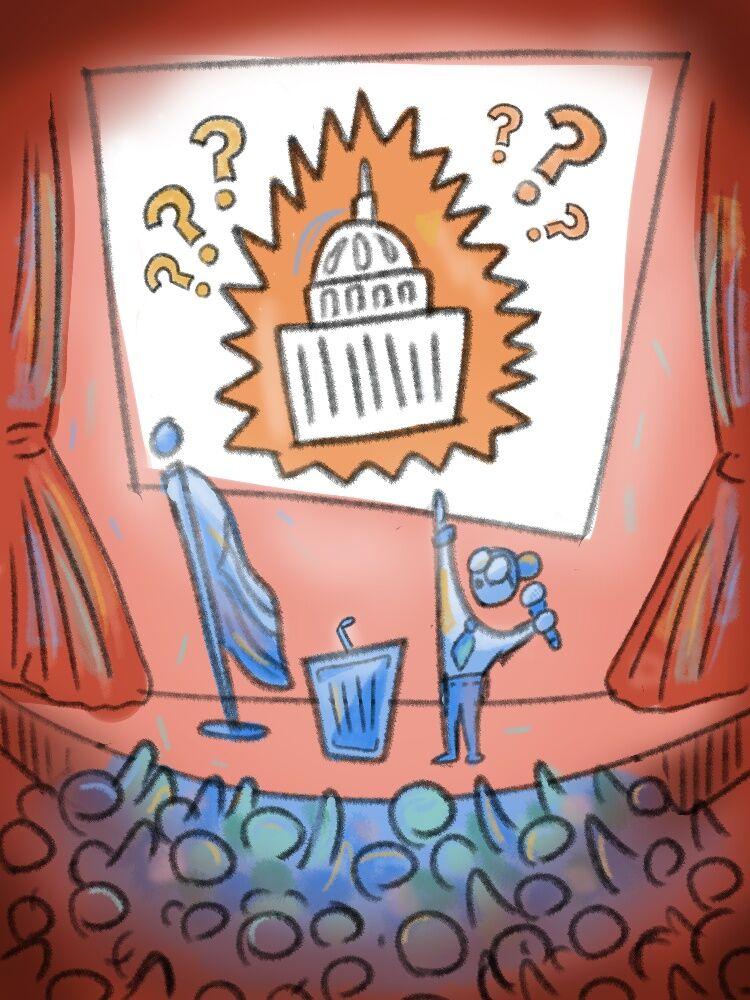On Jan. 11, in the aftermath of the Jan. 6 insurrection at the U.S. Capitol, the School of Public and International Affairs held a free seminar for students aimed at discussing the recent events. The seminar, titled “What’s Going On in Washington?,” led by political science professors Steven Greene and Andrew Taylor, was meant to address questions students had about the potential political implications the riots had on American democracy.
Irwin Morris, executive director of the School of Public and International Affairs and the moderator, said during the seminar’s introduction that the event was created quickly after faculty heard of the breaking news in Washington, D.C.
“We didn’t plan for the timing [of the seminar],” Morris said. “The fact that the House [of Representatives] is voting right now on impeachment and we’re getting started, it’s just how that happened, so I’ll be trying to keep track with that as I’m sure you all will too.”
Greene led the first lecture, saying that the recent insurrection in Washington threatened American democracy. According to Greene, a crucial element of democracy’s well-being is election trust. Greene said many Republican leaders either purposely echoed or walked around President Trump’s unfounded claims of voter fraud, harming democracy in the process. Greene also noted that the repeated promotion of misinformation was also mirrored past authoritative governments, such as Nazi Germany and Stalinist Russia.
“Before the election, I was saying that democracy was on the ballot because of the president’s authoritarian tendencies, and I think this just proves that,” Greene said. “Had Donald Trump won, four years from now, we would be a quasi-democracy.”
Despite the alarming implications, Greene said there was still good news. According to Greene, one of the biggest differences between the Capitol riots and previous historical coups was military presence, saying that military response was exemplary. Additionally, Greene said the fact that Joe Biden will still become president makes the Jan. 6 insurrection different from previous, successful coups.
“[Biden] will have a Department of Justice that will not tolerate domestic, violent, white, right-wing extremists,” Greene said. “I did throw white in there because when you look at that crowd, it’s pretty hard to ignore the racial dimensions of this.”
Taylor led the second lecture, addressing some of the legal consequences the Capitol riots will have on the Trump presidency. Taylor said the 25th Amendment approach many Democrats tried using as a consequence was ultimately flawed. According to Taylor, the impeachment process was much better suited for both addressing the Capitol riots and holding Trump accountable in a timely manner.
“There just isn’t the time to see the 25th Amendment unfold,” Taylor said. “It involves getting the vice president’s lead and then a majority of the members of the Cabinet — if you remember, many of the Cabinet members are already resigning and it makes it unclear — and it also provides the ability for the president to respond to the effort.”
After the lectures, the seminar transitioned to an open Q&A section, with audience members submitting questions to watch Greene and Taylor discuss. Both Greene and Taylor discussed the effects of QAnon and social media on increasing political distrust, the future of Trump and Trumpism within the Republican party and their hopes for a more robust COVID-19 vaccination plan under Joe Biden’s presidency.
“Biden can’t flip a switch,” Morris said. “But I would like to think that a lot of the work done during the transition has been focused on working with the pharmaceutical companies that have the vaccines, both the ones that have been approved or close to approval.”
Nathaly Trinidad Flores, a second-year studying agricultural education, said that the seminar helped her get a better understanding of the political details of the Capitol riots.
“It’s good to hear that a lot of the feelings I’m having are kind of being echoed by people at the University,” Flores said.
For more information, visit the School of Public and International Affairs website.








